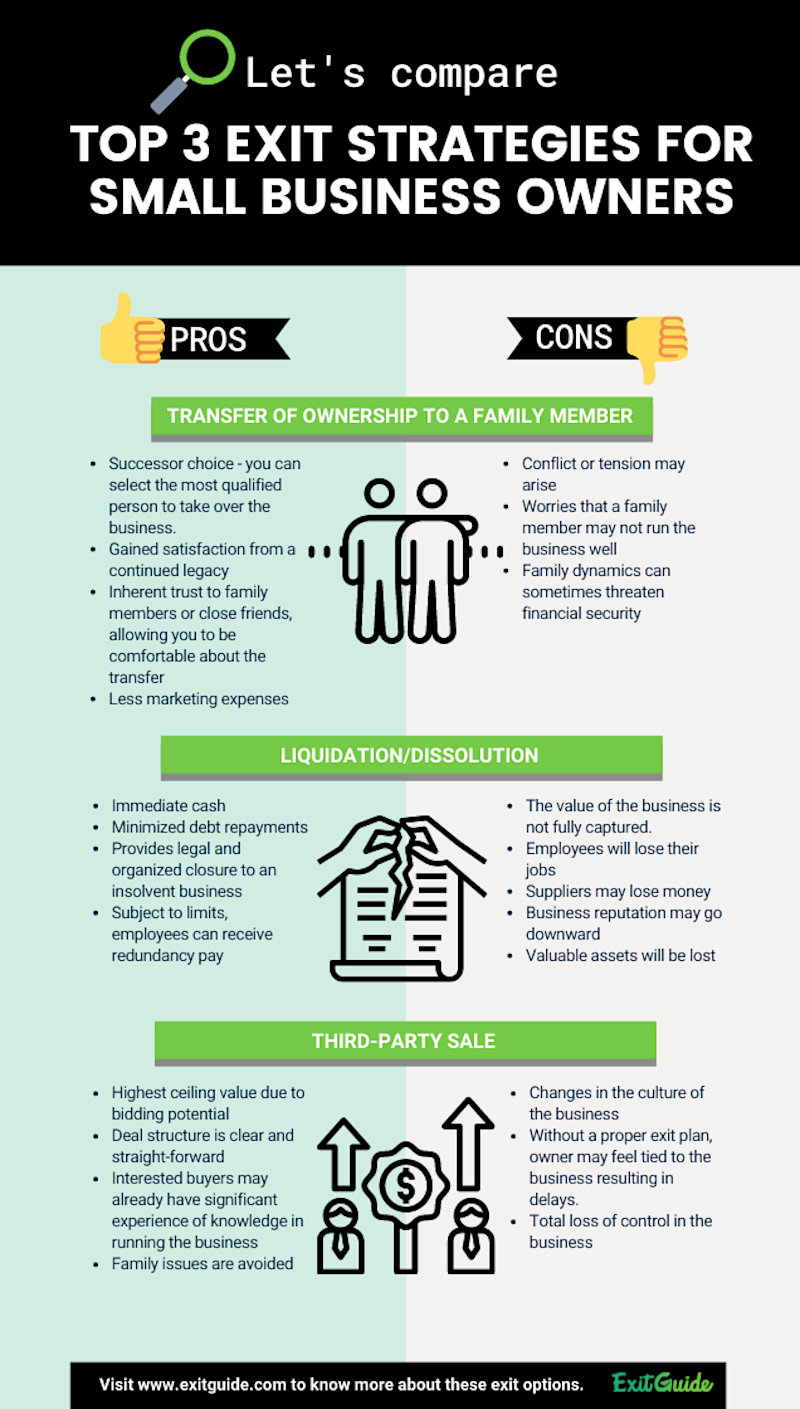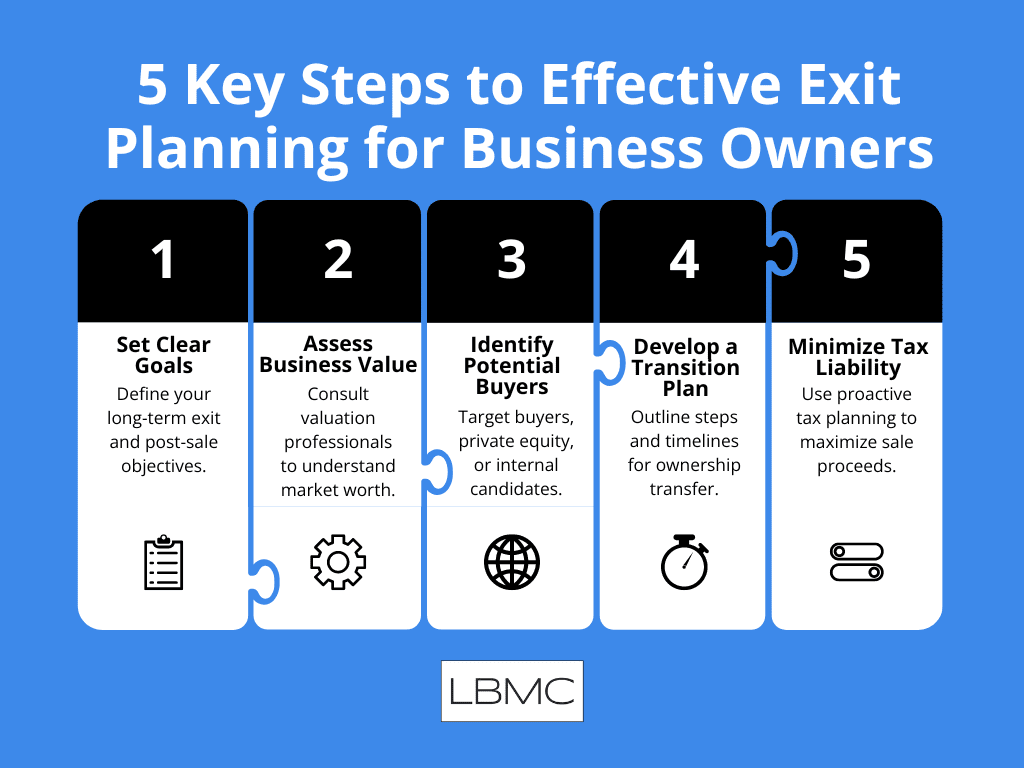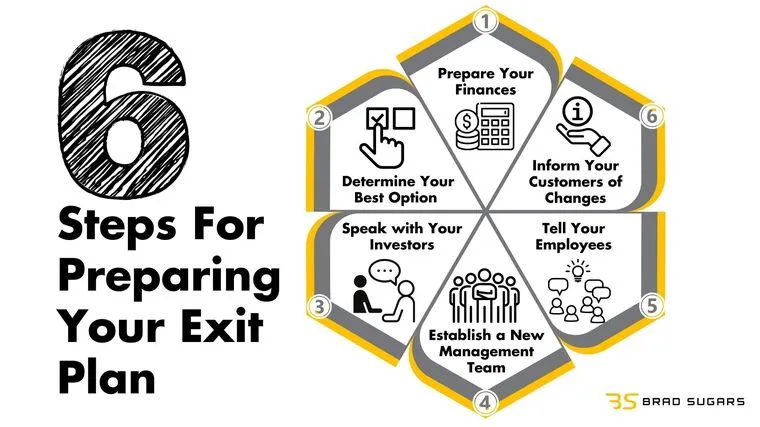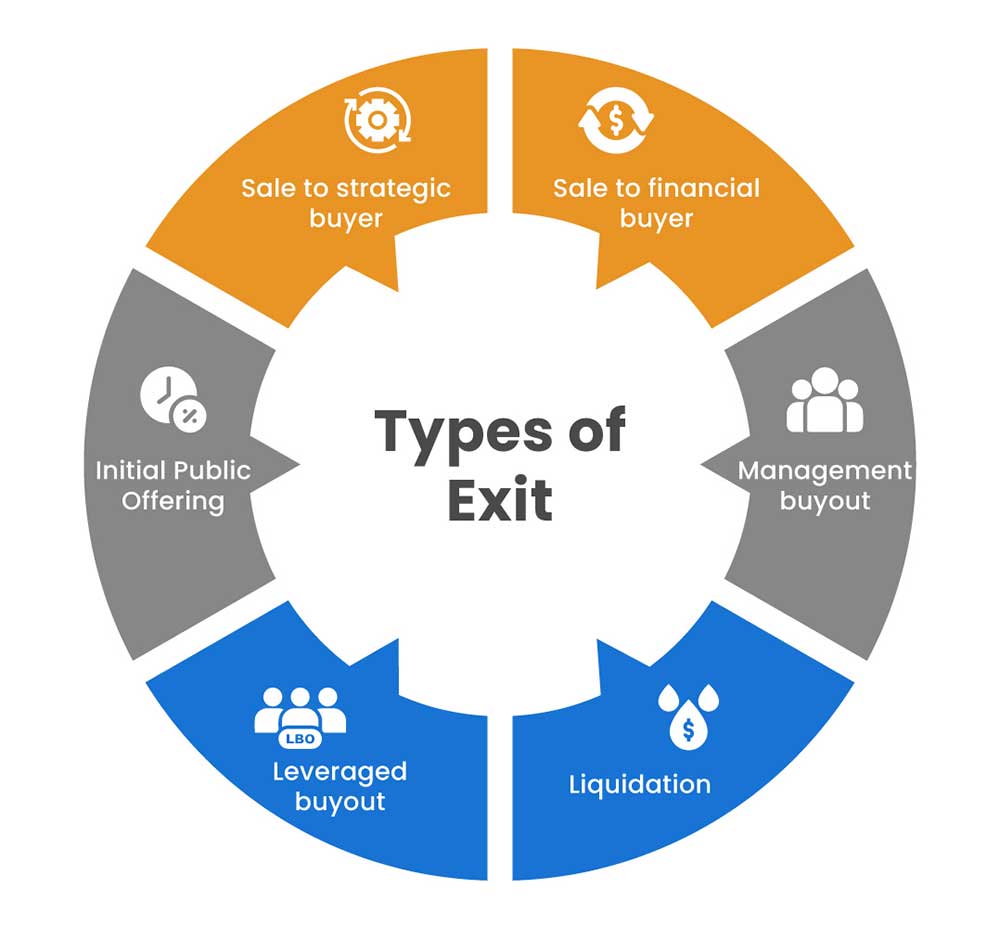Introduction to Exit Strategies
Importance of an Exit Strategy for Small Business Owners
As a small business owner, you have tirelessly worked to build your enterprise, often pouring countless hours and resources into its success. However, there comes a time in every entrepreneur’s journey when planning for life after ownership becomes crucial. Having a well-crafted exit strategy not only safeguards your legacy but also maximizes the returns on your investment.
An effective exit strategy is essential for several reasons:
- Maximizing Financial Gain: By planning your exit early, you can optimize the value of your business, ensuring the financial rewards reflect your hard work and dedication. A strategic approach allows you to identify and capitalize on opportunities to enhance the business’s value before making the transition.
- Smooth Transition: A clear exit plan aids in a seamless transition, protecting both the employees and customers. Whether you’re selling your business, passing it on through succession planning, or considering a merger or acquisition, having an exit strategy minimizes disruptions, maintaining the business’s reputation and operational stability.
- Personal and Professional Fulfillment: Crafting an exit strategy aligns with your long-term personal goals, allowing for a satisfying transition into the next chapter of your life. It provides the time to focus on personal development, retirement, or pursuing other ventures, ensuring your life’s work contributes meaningfully to your future endeavors.
- Minimizing Risks: Without a solid exit plan, your business may face unforeseen challenges, including market shifts and unplanned personal circumstances. An exit strategy acts as a protective measure, helping you navigate potential threats efficiently.
-
Tax and Legal Efficiency: Proper exit planning incorporates legal and tax considerations, preventing costly mistakes and ensuring compliance with regulatory requirements. It allows you to strategize around tax liabilities and optimize the legal framework for your exit.
To comprehensively understand the need for a well-structured exit strategy, it’s beneficial to explore resources such as Entrepreneur, which provides insights and expert advice on navigating business transitions.
In summary, the importance of an exit strategy cannot be overstated for small business owners. It is a vital component of your business journey, ensuring that your labor reaps the rewards and your enterprise continues to thrive, even as you step back.
Overview of Exit Strategies
Navigating the complex waters of exit strategies is an essential phase for every small business owner contemplating the conclusion of their entrepreneurial journey. Whether you are looking to retire, pursue other interests, or simply cash out, understanding your options will help you optimize the outcomes of your departure. Here’s a comprehensive look at the most common exit strategies: selling your business, merging or acquiring, and planning for succession.
Selling Your Business
Selling your business can be an attractive option, offering a clean break and a potential for a significant financial reward. However, successful sales are a result of careful preparation and strategic planning.
How to Prepare for Selling
To maximize the sale value of your business, start by organizing your financial records and improving profitability. This includes cleaning up the balance sheet, reducing unnecessary expenses, and ensuring that financial statements are up-to-date and accurate. It’s also crucial to address any operational inefficiencies. An appealing business is a well-oiled machine ready for a new owner to step in seamlessly.
Finding the Right Buyer
Finding the right buyer involves more than just accepting an offer. A buyer who shares your vision and values may preserve your business’s legacy, benefiting your employees and customers alike. Utilize various channels such as business brokers, industry networks, and digital platforms to connect with potential buyers. Websites like BizBuySell provide a marketplace for sellers and buyers, offering a vast sea of opportunities for business transitions.
Mergers and Acquisitions
Engaging in mergers and acquisitions (M&A) is another sophisticated exit strategy that can create growth opportunities for your business while allowing you to step down or shift roles.
Identifying Potential Partners
In a merger, finding the right partner is essential to a successful union. Look for companies that complement yours, whether through products, services, market position, or cultural fit. A synergistic merger can enhance value and reduce redundancy. Conduct thorough due diligence to vet potential partners—a robust assessment process mitigates risks and ensures alignment of goals.
Navigating Mergers and Acquisitions Process
The M&A process can be intricate and nuanced, extending over several months. Engaging professional advisors with expertise in mergers and acquisitions is advisable. They will guide you through the negotiation, valuation, and integration process. Legal and financial experts can provide critical insights and help mitigate risks during the transition. More insights into the M&A process can be found in this detailed guide from Investopedia.
Succession Planning
Succession planning involves preparing for the future by empowering the next generation to carry on the business legacy. This strategy is particularly relevant for family-owned businesses.
Setting Up a Succession Plan
A robust succession plan is not merely about selecting a successor. It’s about ensuring business continuity and preparing for an organized transfer of roles and responsibilities. Begin by identifying key roles and potential successors, followed by gradually involving them in decision-making processes. Regular assessment of their readiness and skills is essential to ensure they’re prepared when the time comes.
Training Future Leaders
Training future leaders is central to effective succession planning. Develop comprehensive training programs aimed at enhancing their leadership skills, business acumen, and organizational knowledge. Mentorship from current leadership can empower the successor with invaluable insights and guidance. By investing in their development, you maintain the integrity of your business operations and sustain growth beyond your departure.
In conclusion, each exit strategy discussed here provides unique pathways to transition out of your business. The right choice depends on your goals, business model, and future aspirations. By planning carefully and strategically, you can ensure a rewarding conclusion to your entrepreneurial journey.
Business Valuation: Understanding Your Worth
Valuing your business is a critical step in crafting an effective exit strategy. It not only defines the financial return an owner can expect to realize but also positions the business attractively to potential buyers or successors. Here’s a deep dive into how one can comprehend and determine the actual worth of a small business.
Methods of Valuation
There are several predominant methods utilized in valuing a business, each offering unique insights suited to different scenarios:
- Asset-Based Approach: This method calculates the total value of a business by adding up all its underlying assets, both tangible and intangible, before subtracting liabilities. It is particularly beneficial for businesses with substantial inventory or equipment. Learn more about asset valuation.
-
Earnings Value Approach: Often preferred for small businesses, this approach focuses on the business’s ability to generate wealth in the future. It involves assessing the past earnings and projecting them into the future, adjusting for factors like economic trends and industry conditions.
-
Market Value Approach: This method compares the business to similar entities in the market. Businesses are valued based on metrics like earnings multiples drawn from comparable companies. This approach is ideal for owners seeking a valuation grounded in market realities.
Factors Influencing Business Value
A myriad of elements affects a business’s valuation. Identifying and understanding these key influencers can significantly impact the worth of your business:
- Financial Performance: Consistent revenue growth and stable cash flow are potent indicators of a thriving business, greatly enhancing its valuation. Prospective buyers will seek evidence of profitability through reliable and well-documented financial statements.
-
Market Conditions: The overall economic climate and industry-specific trends can significantly alter business valuations. For example, a booming industry may lead to higher valuations due to greater perceived potential.
-
Strategic Advantages: A robust competitive edge, such as patented technology or a strong brand presence, can notably increase business value. These intangible assets often create barriers to entry for competitors, making the business more attractive to buyers.
-
Customer Base and Relationships: A diverse and loyal customer portfolio can suggest stability and growth potential, which are attractive qualities for buyers, potentially leading to a premium valuation.
In conclusion, understanding your business’s worth requires a detailed approach that considers not only financial data but also market dynamics and intrinsic attributes specific to your enterprise. For small business owners contemplating their exit strategy, a precise valuation is indispensable in realizing the true potential of their life’s work.
Exit Planning Strategies
Developing a Comprehensive Exit Plan
Creating a comprehensive exit plan is an essential task for any small business owner aiming for a smooth transition. An effective exit plan starts with setting clear goals that align with your individual financial needs, personal timeline, and the future vision for your business. Begin by asking yourself: What do you wish to achieve with this exit? Are your priorities financial gain, preserving your business legacy, or ensuring employee welfare?
Once you have clarified your goals, the next step is to gather a team of experts. This typically includes a financial advisor, a tax professional, a legal expert, and a business broker. These professionals will help in preparing financial documentation, ensuring compliance, and maximizing your company’s sale value. Regularly revisiting and updating your exit strategy will keep you aligned with ever-evolving market conditions and personal circumstances.
Moreover, extensive market research and keen competitive analysis are vital for understanding where your business stands and how to optimize its appeal to potential buyers. Working with a trusted advisor like a business appraiser can help determine your company’s present valuation, while recommending strategic improvements for enhancing its value.
Legal Considerations in Exit Planning
When planning an exit strategy, understanding the legal considerations involved is critical to a successful transition. Legal requirements can vary significantly based on the structure of the sale, the type of business, and local jurisdiction. Crafting legally compliant contracts that detail the terms of the sale or transfer is paramount. It is advisable to work closely with a legal expert to draft comprehensive, binding agreements that protect your interests and reduce potential liabilities.
Furthermore, business owners must tackle several key legal components, including intellectual property rights, employee agreements, and any outstanding business obligations, such as debts or pending contracts. Ensure that all necessary permits and licenses are transferable or can be closed out as required.
An often-overlooked aspect of legal preparation in exit planning is understanding tax implications. Different exit strategies can have varied tax consequences, and a tax advisor can guide you through structuring the sale to minimize tax liabilities while respecting legal stipulations. For more guidance on managing tax aspects in exit planning, you can explore resources provided by the Small Business Administration (SBA).
Remember, the legal landscape of exit planning is intricate, and overlooking even minor details can lead to significant complications. Consequently, investing time and resources in this aspect of your exit strategy is indispensable for avoiding future legal and financial pitfalls.
In conclusion, crafting a well-thought-out exit strategy is a critical component of entrepreneurship that can profoundly affect both your financial future and the legacy of your business. Whether your plans involve selling your business, engaging in mergers and acquisitions, or establishing a robust succession plan, each path requires careful consideration and strategic implementation. This comprehensive guide has outlined the various approaches to exiting a business, emphasizing the importance of early and meticulous planning.
Having a strategic approach is essential not only for maximizing the financial return but also for ensuring that your vision and values are reflected in the transition. As you navigate through business valuation and exit planning strategies, keep in mind the myriad factors that influence these processes. From understanding the nuances of business worth to the intricacies of legal considerations, each element has its role in shaping a successful exit plan.
The importance of seeking professional advice cannot be overstated. Collaborating with legal experts, financial advisors, and industry consultants can provide invaluable insights and ensure that your interests are protected throughout the transition process. Resources such as the U.S. Small Business Administration are excellent starting points for finding expert assistance and additional information.
Ultimately, the success of your exit strategy lies in how well you prepare and adapt to the dynamic marketplace. By being proactive and informed, you can confidently steer your business towards a smooth and beneficial transition, ensuring that your hard work and dedication continue to thrive in capable hands.






